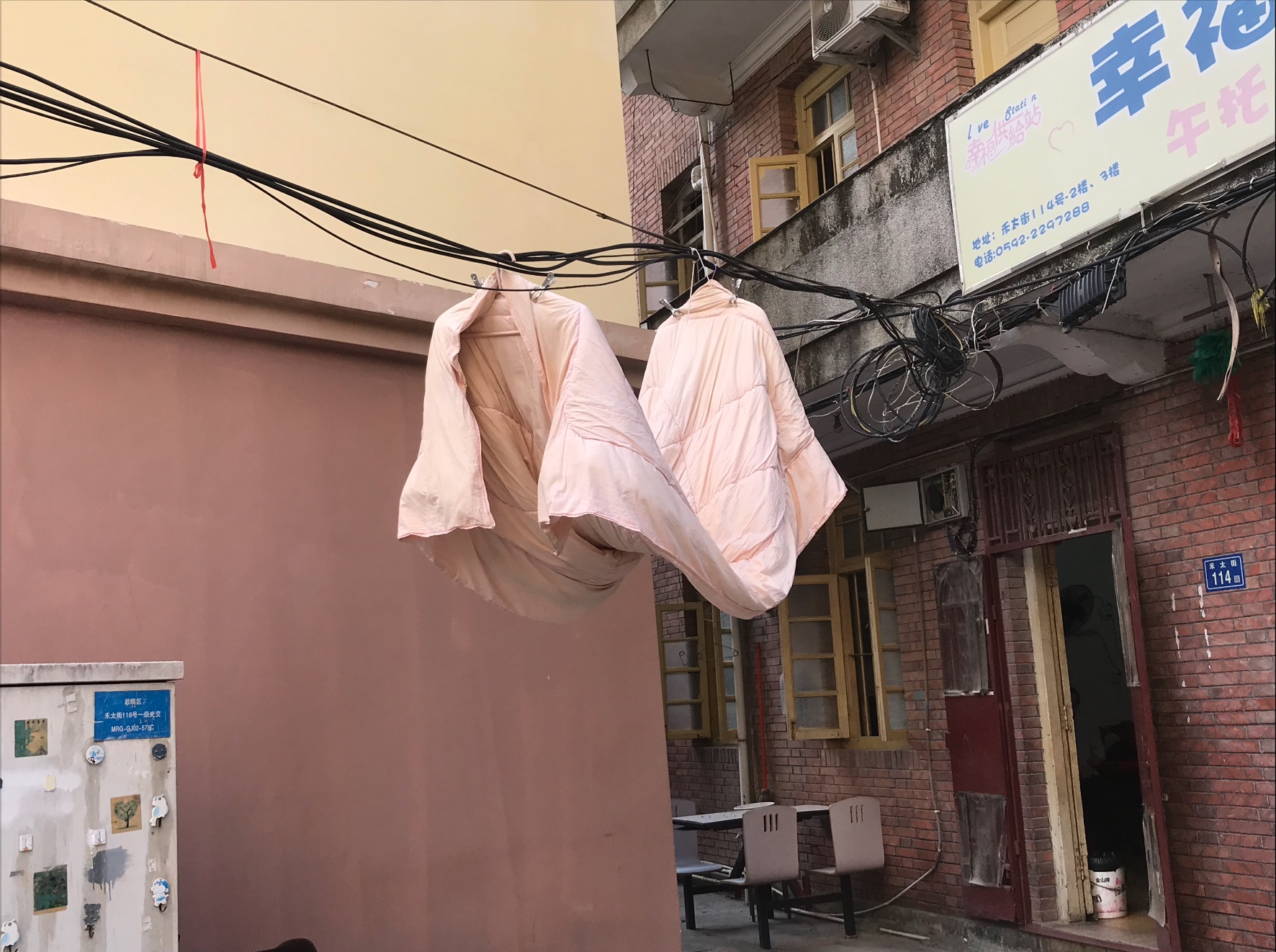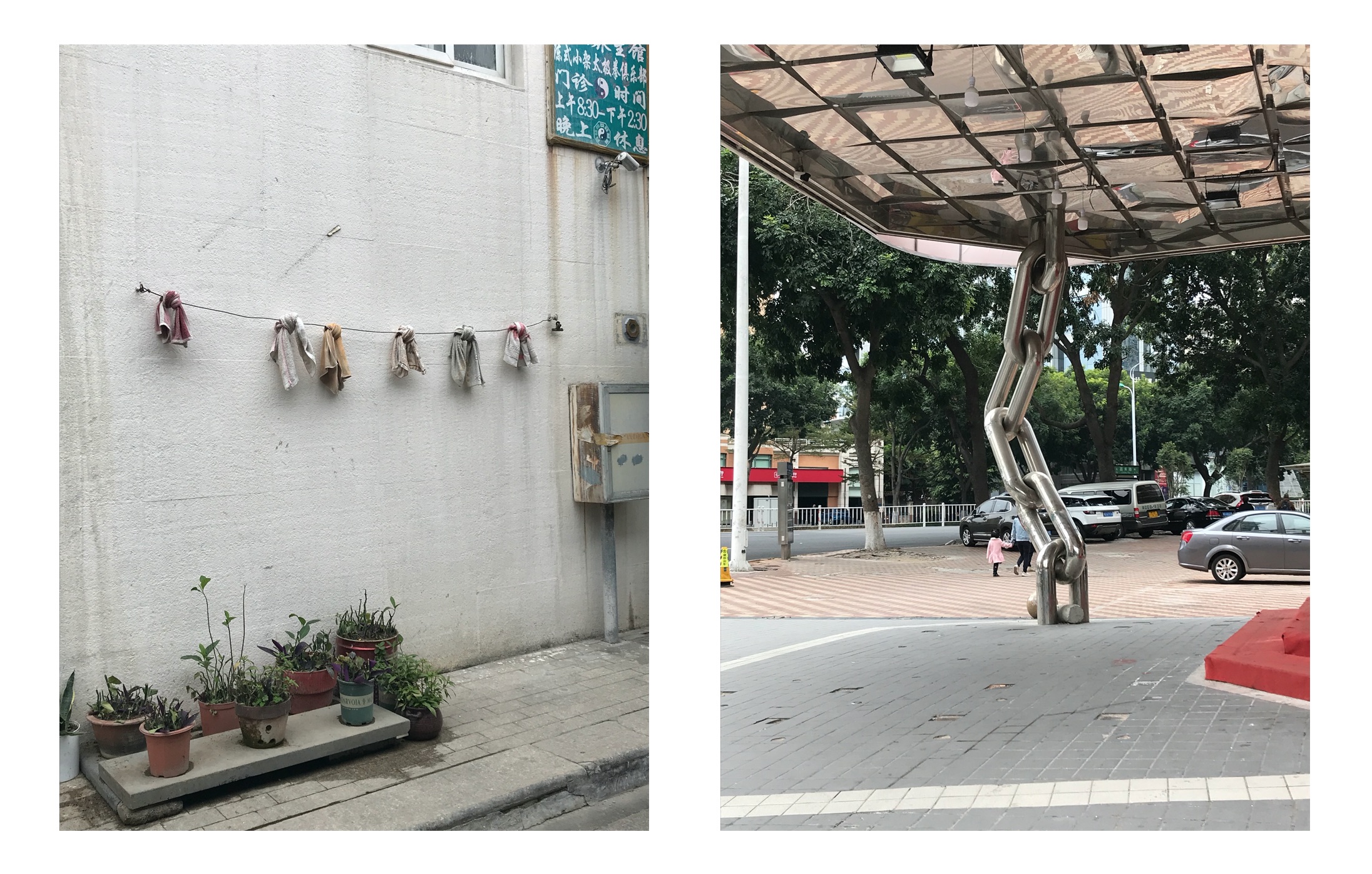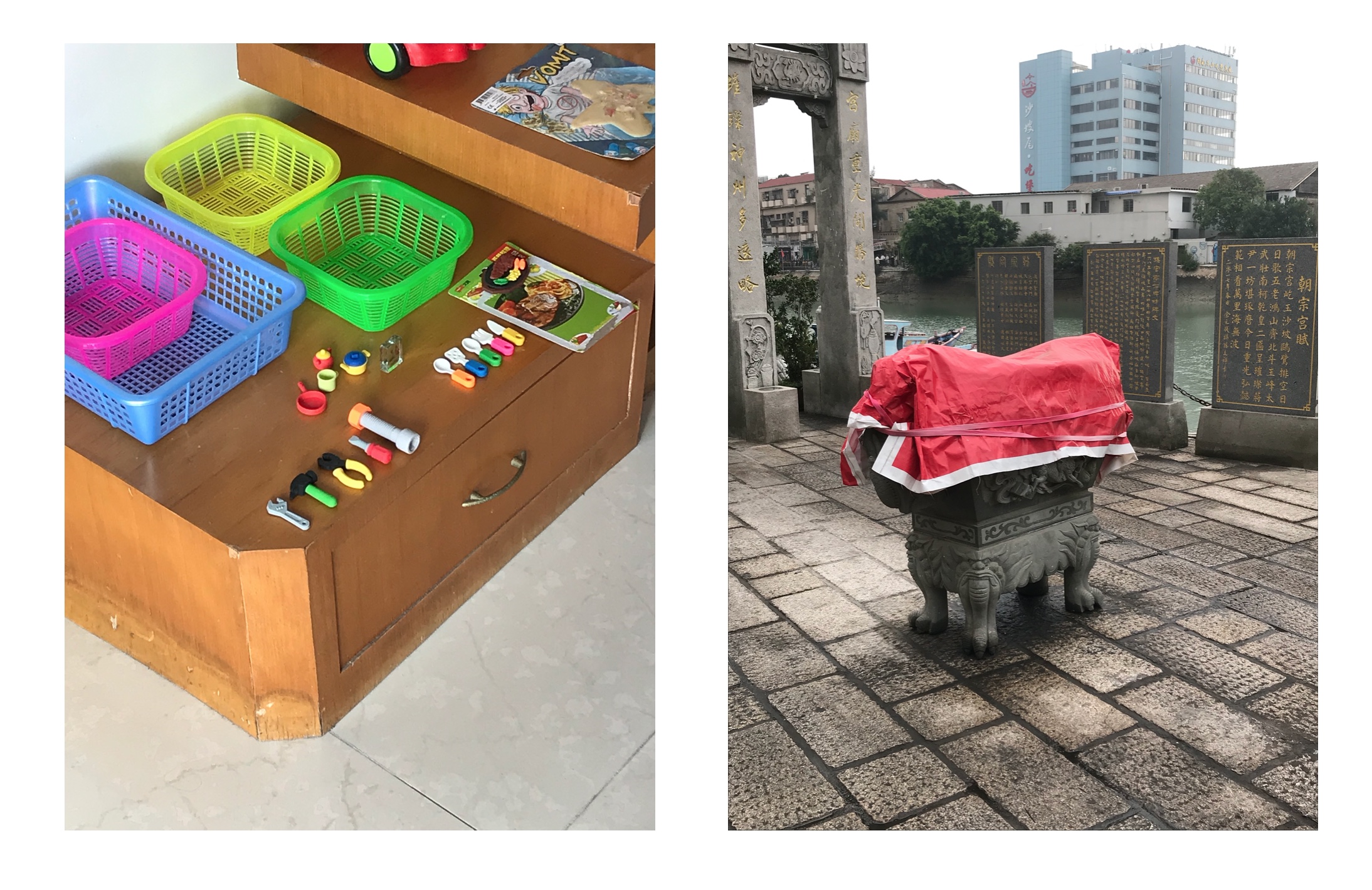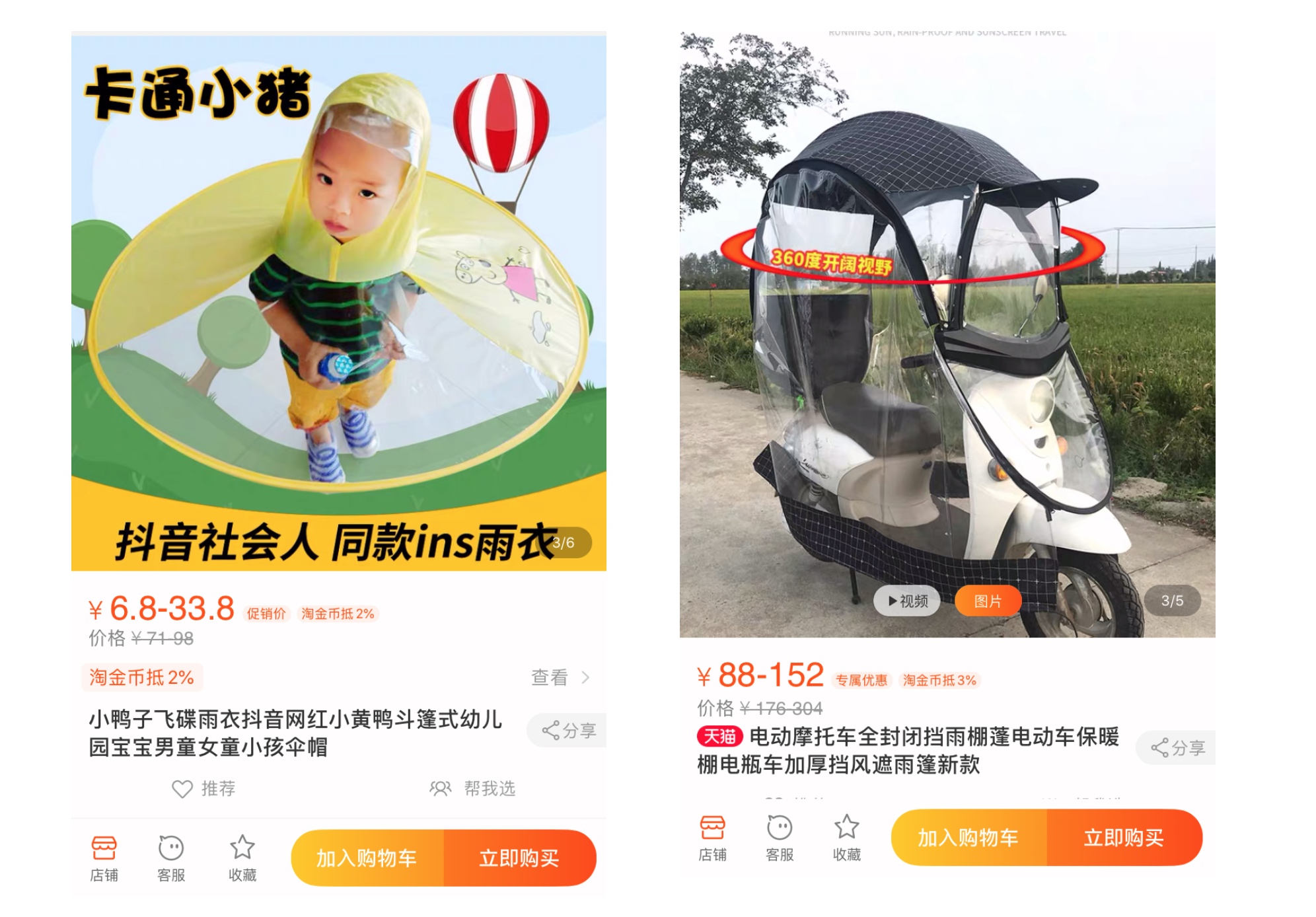We caught up with Milena Anna Bouma, who spent January and February at CEAC in Xiamen in earlier this year. Amidst the pandemic, we got to talking objects, bread-baking and life amidst lockdown.

CR: Hi Milena! So nice to be catching up digitally - and nice to be chatting in the same timezone :)
Milena: Hello! Likewise :)
CR: To start off, can you tell us a bit about your background - where did you grow up, where did you go to school and what were you doing in the years after graduation?
Milena: I was born and raised in Amsterdam and I also studied art here at the Gerrit Rietveld Academie. I graduated in 2018, and continued working as an artist, making sculpture and installations. It actually quite smooth, I just kept making work for one exhibition onto the next. In 2019, I decided I wanted to go on a residency abroad and I was immediately interested in China.
CR: How did you find this particular residency, and what made you apply to it?
Milena: I found out about the CEAC through the Transartists website and I saw that some of my former teachers had gone. Since the CEAC was co-founded by a Dutch person (Ineke Gudmundsson), there have been a lot of Dutch residents. I asked around a little bit, did some research, and decided to apply. I got a positive response the very next day, so I started the process of making the trip possible, financially.
CR: How did you manage with the funding for the residency? Did you have to pay for some parts yourself or did you apply to some grants?
Milena: I received a project investment by the Mondriaanfonds and a grant from the Theodora Niemeijerfonds. They covered all the costs. The CEAC has a residency fee so (for most artists) it is only possible with external funding.
CR: What were your first impressions of Xiamen and CEAC?
Milena: I arrived on the 1st of January, coming from cold Amsterdam. Xiamen is super sunny and green, and the apartment and studio is located in a pink building by the beach. It is a beautiful area, it’s surrounded by a lot of nature but still very close to the CEAC exhibition space and other places of the city. I love that everyone hangs all their clothes outside, since the weather is so nice.
CEAC is located in an cat-themed area, which is kind of random, but it’s a nice (if a little bit touristy) area close to the university. The CEAC and the little community connected to it are really great!

CR: Xiamen is a dreamy city - especially when coming from Amsterdam winters! What did you expect before going to China, and how did these expectations turn out after your arrival?
Milena: Well, I decided to not expect too much. Honestly I didn’t even know exactly where I was going - I decided to just see when arriving.. Because I had been in China before, I thought I wouldn’t experience a culture shock, but I did feel it again. I guess I forgot about the feeling of not being able to understand anything and being stared at sometimes. But this disappeared in a few days. Also what saved me was WeChat, which I didn’t use the last time I was in China, and of course, May Lee (the phenomenal program at CEAC).
CR: Ah, I can relate to forgetting about the initial culture shock, even after coming back to a place for a second or third time. And having WeChat definitely makes life easier. When was your first time in China?
Milena: It was 2016. Back then, I traveled with two friends from Beijing to Hong Kong, passing through big cities like Shanghai and famous nature reserves like Zhangjiajie (the mountains that appear flying in the Avatar movie) and Huangshan. We were really just tourists, and did not meet many Chinese people. Now in Xiamen, I have the feeling that I really learned so much more about China, and how people live there. It was much more interesting.
Also, I was amazed how quickly China is still changing. Technology moves so fast in China. Trains, payments, so things were completely different back in 2016!


CR: So much can change in just 4 years. I remember talking to friends who have gone back to China after 8 years or more abroad, only to discover they also need to adapt to all the new payment systems and changes that happened while they were gone. For them, it was quite an alienating experience, being in their home country, yet having to learn those things.
Milena: Yes, I also heard this from many people. It’s also amazing how older people also are so adept and know how to get around with these new technologies. It's very different than here in Europe.
CR: Did you have any specific projects planned for the residency at CEAC? If so, how did it turn out, or has the plan changed after arriving in Xiamen?
Milena: My work always circles around commodified objects and the domestic space. How can we distinguish the boundaries of things that are alive in relation to everyday objects and materials? What are other ideas of living or vibrant materials and how to empathize with “non-living” matter? Can an inanimate object like an iron table or a toy become a ‘tank’, ‘container’ or ‘station’ for something else? And how can they supplement, enhance or challenge each other? Most materials and objects that I usually work with are produced in China. My plan was at first to just come and see what I want to work with and what caught my eye. In Xiamen, I saw so many beautiful installations of things in the streets, clothes hanging or ingenious assemblages of objects in order to keep things dry or protect things. I really think many people are so creative with objects on the street and it becomes very sculptural. So I started out with just collecting a lot of objects, things that caught my attention because they were strange to me, or just things that were very normal objects such as buckets and cleaning materials. I went to small local stores which sell buckets and household materials. The store owners were often looking very confused with the things I bought. Soon I learned that everyone in China buys everything online - on Taobao. I started to research on Taobao - challenging given my limited Chinese, but also fascinating: literally everything is available there. Since I personally couldn’t order anything myself (I don’t have WeChat pay) and the epidemic started to develop, I just started to collect screenshots of things I found beautiful.
CR: You probably have a lot of incredibly amazing Taobao items saved on your phone by now. What are some of your favorites?
Milena:


CR: It sure must have been a strange time period for you to be in, having experienced the outbreak of the Covid-19 pandemic twice. First beginning of January in China, and now experiencing the same thing again in Europe.
Milena: Yes... Things actually started to get back to normal, sort of, when I left Xiamen in the end of February. And then, just one week later, it started in the Netherlands. I was super disappointed to leave everything behind, I couldn’t get a new visa in Hong Kong, but my plan was to return in April or May, which is obviously not possible now. I hope I can go back as soon as possible!
CR: This pandemic showed again how difficult it is to navigate international travel, given all these new border restrictions and changing entry-requirements. It's a shame to hear about the visa issues, but probably best to be feeling at home right now. How did you feel when seeing the news unfold, and what were your thoughts at that time?
Milena: Actually I didn’t notice it that quickly in Xiamen, because I can’t read the Chinese news. It wasn't until I saw someone's WeChat post about the temperature checks in Wuhan in late January that it started to look pretty serious. After that, everything went really fast: the last celebration was with Chinese New Year and then everything closed down, and stayed closed for one week at first, then for another week, and so on. I wasn’t really afraid because Hubei was pretty far away, and Xiamen didn’t have so many cases. Also everyone was very careful, way more than here. When the epidemic started to develop in Amsterdam, people were still sitting out on the terraces, in bars and they were really not aware, which was so alarming to me after seeing the situation in China, and how quickly people there reacted.
CR: How were your average days structured? Maybe we should divide it into before and after... Was it to be in Xiamen before and after the lockdown?
Milena: The first months was really great and exciting! It gave me a lot of space and time to rest and thinking, but it was also very strange to temporarily live in such a different country. Most of the time I woke up, went out to the beach or walk through the city and got to work on collecting objects from stores. At home, I would read or work on assembling objects. Since my Internet was very slow it was almost impossible to watch films or series on the computer, which was also pretty good to concentrate. Of course, in the first month, I also spent a lot of time getting to know people, socializing and going to dinners dinners. All that wasn't possible during the outbreak.
In February I still had similar days, but of course, everything it was a bit limited. The textile and art stores were closed, all restaurants were closed and area around CEAC was totally shut down because it's a hot spot for tourists. Luckily, the beach was still accessible.


CR: Were there other artists at CEAC while you were there? How did everybody else in your surrounding react?
Milena: I was there at the same time with the dutch artist Hester Oerlemans (who came with her partner Marike) and Colette Hosmer from the USA. Everyone stayed chill but Colette left quite quickly, because she couldn’t really continue her work. I also have to say that I was very optimistic during the outbreak - I was thinking that it might last two or three weeks! Which was obviously not the case at the end... still I had a great time. Hester also stayed and actually just had her show opening in the CEAC!
CR: That is great! Can you tell us where you are at in the moment, and how does your daily routine look like now?
Milena: Right now I am back in Amsterdam, staying at home mostly. I don’t have a studio right now so I am working on some textile work and quarantine bread art (since everyone is obsessed with baking bread these days...) Otherwise, I am reading books and cooking. It is kind of good, I can’t complain, but I am of course also dreaming about better times...
CR: Ah, the good old bread baking... hopefully with sourdough, since yeast is also sold out everywhere! What is your plan for the future / next few weeks?
Milena: I just bought bulk amounts of regular flour at the wholesale! I am trying to not force myself into having the most productive time during this quarantine - it is very hard to focus these days! But of course I cannot sit still completely. I am going to send a little work to Sweden, for an exhibition there. For the rest I am doing some work that I can do at home, and I am actually starting a Chinese language course in May. I already started on Duolingo, I am really enjoying it. I'm learning with the future perspective of returning to Xiamen, and maybe putting some of it to use!
CR: Awesome! It is a weird disrupted time for us all, and it can definitively hard to concentrate. Looking forward to your show in Sweden, good luck for the preparations! Is there anything you want to add, or talk about? Both for the residency at CEAC, your time in Xiamen / China in general, and/or covid-19 related thoughts :-)
Milena: Go to Xiamen! It is great! And China in general. And also: don’t be too hard on yourself during these times! It’s ok to be unproductive.
This interview was conducted by Xiaoyao Xu for China Residencies in April 2020. All photos courtesy of Milena Anna Bouma.
